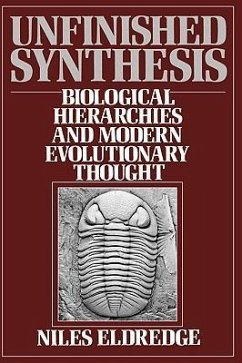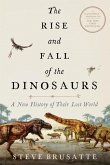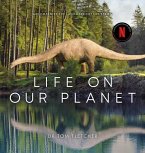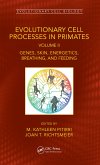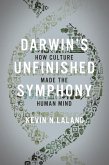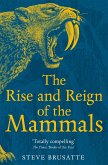This provocative study provides a stimulating critique of contemporary evolutionary thought, analysing the Modern Synthesis first developed by Theodosius Dobzhansky, Ernst Mayr, and George Gaylord Simpson. Written by an eminent evolutionary biologist (the co-founder of the theory of punctuated equilibria), this highly readable book argues that only genes and organisms are taken as historic 'individuals' in conventional theory. Eldredge proposes that species, higher taxa, and ecological entities such as populations and communities should also be construed as individuals - an approach yielding the ecological and genealogical hierarchies that interact to produce evolution. This clearly stated, controversial work will provoke much debate among evolutionary biologists, systematicists, palaeontologists and ecologists, as well as lay readers.
This study provides a stimulating critique of contemporary evolutionary thought, analyzing the Modern Synthesis first developed by Theodosius Dobzhansky, Ernst Mayr, and George Gaylord Simpson. The author argues that although only genes and organisms are taken as historic "individuals" in conventional theory, species, higher taxa, and ecological entities such as populations and communities should also be construed as individuals--an approach that yields the ecological and genealogical hierarchies that interact to produce evolution. This clearly stated, controversial work will provoke much debate among evolutionary biologists, systematists, paleontologists, and ecologists, as well as a wide range of educated lay readers.
Hinweis: Dieser Artikel kann nur an eine deutsche Lieferadresse ausgeliefert werden.
This study provides a stimulating critique of contemporary evolutionary thought, analyzing the Modern Synthesis first developed by Theodosius Dobzhansky, Ernst Mayr, and George Gaylord Simpson. The author argues that although only genes and organisms are taken as historic "individuals" in conventional theory, species, higher taxa, and ecological entities such as populations and communities should also be construed as individuals--an approach that yields the ecological and genealogical hierarchies that interact to produce evolution. This clearly stated, controversial work will provoke much debate among evolutionary biologists, systematists, paleontologists, and ecologists, as well as a wide range of educated lay readers.
Hinweis: Dieser Artikel kann nur an eine deutsche Lieferadresse ausgeliefert werden.

